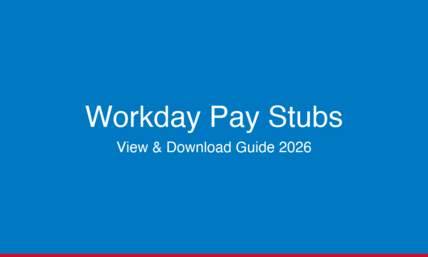Understanding Your Paystub
Let's get down to business, so what is a paystub? There's a lot of important information out there on what is a paystub and you should know what it entails. The real news and the myths. It doesn't matter whether you have direct deposit or not, you will still receive an itemized list of pay and deductions for each pay cycle.
Here are the important things should know about what is a paystub. Read on to uncover the particular elements.
What Is A Paystub?
This question is not at all uncommon. What is a paystub is the most basic question you should be asking once you begin a job, a gig, or a career. On the outside, a paystub is just a document, but delve deeper! A paystub is a piece of paper given to an employee by an employer that outlines all of your payment details.
A pay stub dissects your pay into net pay and your take-home pay. It itemizes your salary and wages earned for a set period of time. This is what is a paystub in a nutshell but let's look deeper to see what those things mean and how do they affect me.
Gross and Net Pay
These are the two most important items you should know when asking yourself what is a paystub. They represent your overall and take-home pay. Your gross income is the amount that your employer pays you. If your salary is $40,000 per year, that would be your gross income divided into each of your paychecks. It's important to note whether all of your paychecks for the full year add up to that total. Give it a go!
After deducting taxes, health insurance premiums, 401(k) contributions, and any other items in each pay cycle, you're left with your net income. All deductions will be itemized on your paystub, so you can add them up to make sure your net pay is accurate.
The net income is not necessarily the total that you have for the entire year. Depending on your W-2 or W-4, you may be entitled to a tax refund. Of course, you could also owe additional taxes at the end of the year.
Taxes
Yes, taxes are at the center of understanding what is a paystub. There are a lot of taxes taken out of your every paycheck. Some of the payroll taxes are higher than others. These include local, state and federal income taxes, which are all withholding taxes. State and local taxes depend on where you live and may not be deducted in your place of residence.
In addition, you have to pay social security, Medicare and possibly unemployment insurance tax. Note that employers pay federal unemployment tax, but some states require employees to contribute to local unemployment insurance. Some of these taxes may be itemized or lumped together as FICA (Federal Insurance Contributions Act).
Social security and Medicare are both apart of FICA and may be grouped together. Social security tax is set at 6.2% of gross income, while Medicare is set at 1.45%. Still asking yourself what is a paystub?
Other Deductions
Additional deductions that may show on each pay cycle include 401(k) contributions and insurance premiums. Unless your company pays for your insurance premiums, it will be deducted from your paycheck. You may also have pre-tax health savings account deductions. In addition, you may have disability insurance deducted from your paycheck.
All of these are considered voluntary deductions. These contributions depend on your choices as an employee. They may also depend on your gross income and state in which you live.
Hold onto Your Paystub
Now, that you've understood what is a paystub, you should hold onto those paystubs throughout the year. Employers are required to provide forms with all the pay and deduction information at the end of each year. However, sometimes these forms get lost, delayed or mishandled.
Throughout the year, each item on your paycheck will also include a YTD section.
This indicates how much you were paid, or total deductions year-to-date. This is an important section for your tax records. If you at least have the stub from your final paycheck of the year, you will still have all the necessary information to file taxes. Now that you know what is a paystub and you understand its importance, perhaps you need to create one.
You've come to the right place, we make it easy for you to create your pay stub in minutes. Check out our pay stub samples and choose the one that works best for you. Create your paystubs today with our check stub maker!
Also read: What Should I Do If My Employer Won’t Provide A Pay Stub?















